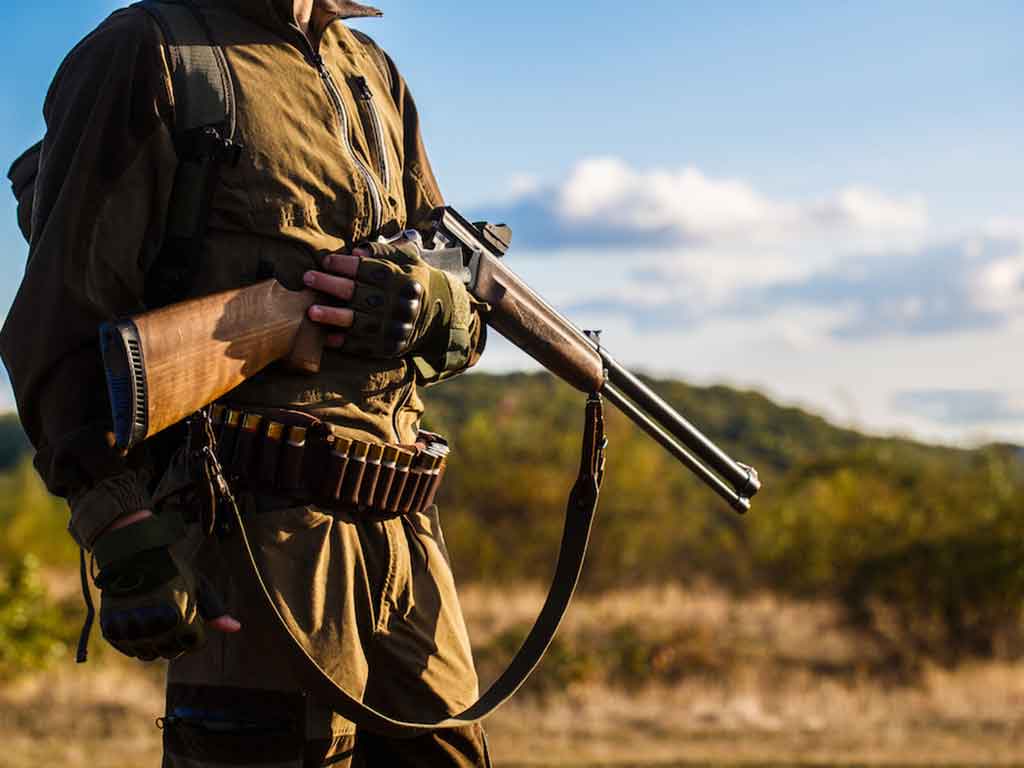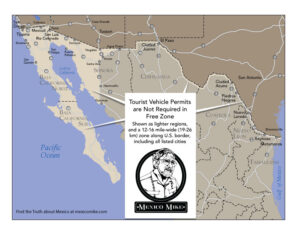Taking guns into Mexico? Only if you are a hunter … and you follow these guidelines.
Shotguns are allowed when you prove to Mexican Authorities upon entrance to Mexico that you will be hunting.
The US Department of State warns US citizens against taking any firearm or ammunition into Mexico without written authorization from the Mexican authorities. Entering Mexico with a firearm or even a single round of ammunition carries a penalty. The penalty may be up to five years in prison, even if brought by accident. In practice, however, for a first offense, expect a fine of around one thousand dollars. Possible confiscation of vehicle and one-year expulsion from our southern neighbor.
There are restrictions on the size of the shotgun and the caliber of ammo etc. Take a look at these guidelines for Hunting in Mexico:
- You may bring migratory game birds (ducks, geese, swans, doves, pigeons, cranes, rails, coots, gallinules, woodcock, and snipe) and other game species that you legally kill in Mexico back with you to the United States.
- Each migratory game bird you import must have one fully feathered wing attached so that its species can be identified. This wing must remain on the bird until you reach your home. (or deliver the carcass to appropriate processing, taxidermy, or preservation facility in the United States.
- Because of this identification requirement, you may not import processed items made from birds you take, such as sausage.
- You may not import any birds belonging to another individual.
- You may enter the country with game birds that you legally killed in Mexico through any U.S. Customs port of entry or border crossing.
- You may also mail or ship your game birds back to the United States. You must put the full name and address of the exporter and importer on the package. You must also conspicuously mark the package on the outside with an accurate description of the contents, including the number and species of birds.
- You may import as many waterfowl as Mexican authorities allow you to export. This number usually corresponds to daily bag and possession limits.
- You may not import doves and pigeons in excess of the amounts permitted by Mexican authorities.
- Because you are importing wildlife, you must file a Declaration for Importation or Exportation of Fish and Wildlife (form 3-177) with the Service or U.S. Customs and Border Protection (CBP) when you return to the United States.
- You must also provide any export permits, tags, or other documents required by Mexico, including a copy of your hunting license.
- You may download and print a copy of the required declaration form 3-177, or you may contact any Service inspection office or CBP before you leave.
- If you return to the United States at a border crossing or airport staffed by Service officers, our wildlife inspectors may examine your birds. Wildlife inspectors monitor wildlife imports and exports; conducting physical inspections helps them ensure that both commercial shippers and international travelers comply with the U.S. and international wildlife protection laws and regulations. CBP officers may also look at your birds.
- You may not import waterfowl, or other game birds killed illegally under any Mexican law, including state hunting rules and regulations. Such importations violate both the Migratory Bird Treaty Act and the Lacey Act – a U.S. law that makes it a Federal offense to import wildlife taken in violation of state, tribal, or foreign law.
- If you have additional questions about importing waterfowl or other game birds from Mexico, please contact any Service wildlife inspection office.
Other Agency Requirements
Other Federal agencies, including Customs and Border Protection (CBP) and the U.S. Department of Agriculture (USDA) Animal and Plant Health Inspection Service (APHIS), also regulate the importation of game birds. In addition to reviewing the information provided below, we recommend that you check directly with these other agencies before you travel.
- You must present your Service declaration (form 3-177) to a CBP officer if you import game birds at ports where no Service inspectors are stationed.
- Because of the avian flu outbreak and the continued presence of Exotic Newcastle Disease in Mexico, the USDA requires permits for game birds imported into the United States from Mexico.
- Hunters returning with game birds from Mexico must consign them to an approved USDA facility.
- To find out more about USDA/APHIS procedures and permits, contact that agency’s National Import-Export Center at (301) 734-3277, fax (301) 734-8226, or via Web at http://www.aphis.usda.gov/.





